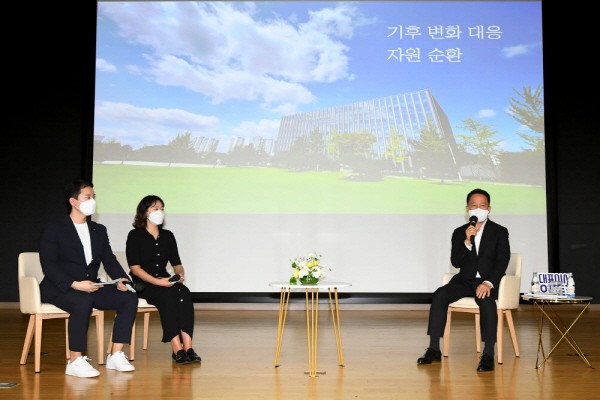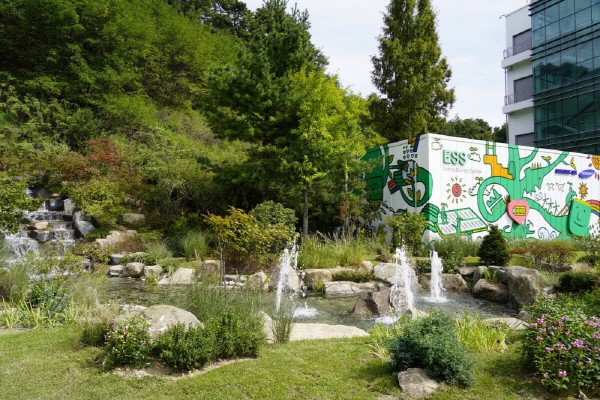
Samsung SDI CEO Yoonho Choi declared eco-friendly management to become a carbon-neutral company by 2050. Samsung SDI will implement 8 sub-tasks in two areas: △Respond to climate change and △Resource circulation.
Samsung SDI will use renewable energy by 2050 in its domestic and overseas business sites. It will increase the proportion of renewable energy use from major overseas plants such as Hungary, China and Malaysia. It will increase the proportion of renewable energy use by mobilizing various available measures such as purchasing renewable energy certificates, green rate plans, renewable energy supply contracts, and expanding solar power generation facilities.
Samsung SDI joined the RE100 initiative. RE100 is a voluntary initiative to cover 100% of the electricity used by businesses with renewable energy by 2050. Samsung SDI is also reducing greenhouse gas emissions. Boilers for liquified natural gas (LNG), the main cause of greenhouse gas emissions, are replaced with electric boilers in order to reduce greenhouse gas emissions from the use of LNG. It is also planning to replace the incineration facility with an LNG-free adsorption facility.
Samsung SDI is also expanding its carbon footprint certification products in response to a major battery market in Europe. It plans to reduce carbon emissions throughout the battery life cycle, and continues to expand carbon footprint products. Samsung SDI has decided to convert its vehicles to EVs by 2030, and expand its charging infrastructure. Its employees and customers can conveniently use EVs by building a charging infrastructure in the parking lot of domestic business sites.
Samsung SDI also maximizes resource circulation to achieve carbon neutrality. It plans to continuously expand the use of recycled raw materials without directly mining core raw materials for batteries, such as lithium, nickel, and cobalt. The proportion of using recycled materials will be expanded in cooperation with domestic battery recycling partners in Cheonan and Ulsan, but also in Malaysia and Hungary Samsung SDI is also improving the development of recycling technology through technical cooperation with partners and industry-university cooperation. Samsung will also minimize wastes such as waste organic solvents and waste oil in the production process.
CEO Choi said, “Eco-friendly management is a social responsibility that a company must implement for future generations. This is the core competitiveness of corporate management that is essential for Samsung SDI to become a global top-tier company by 2030.”

By Staff Reporter Jiwoong Kim (jw0316@etnews.com)